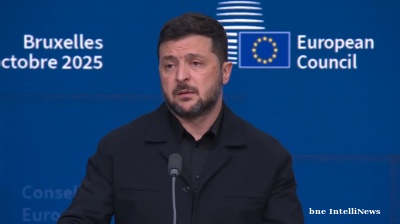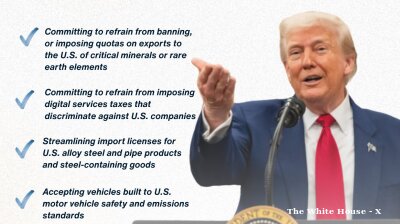The unavailability of alcohol has been identified as a constraint for tourists in Saudi Arabia, according to Russian tourism officials on September 20.
Taras Kobishchanov, vice-president of the Association of Tour Operators of Russia (ATOR), told RIA Novosti that the absence of alcohol in Saudi Arabia is a significant obstacle to growing tourist flow.
Kobishchanov said the destination has "enormous" potential, but several factors are hindering growth.
He noted that Saudi Arabia's policy is the primary reason, although rules are already changing. Additionally, the authorities have lifted quotas on the minor pilgrimage otherwise known as "Umrah", which will increase the number of Muslims wishing to travel there.
"There remains a very serious restriction for our tourists — alcohol, and for now it's insurmountable," he stated.
The ATOR vice-president also cited infrastructure development, hotel availability, and paid visas for Russians as reasons slowing tourist flow to Saudi Arabia.
Kobishchanov added that in 2024, the number of Russians holidaying in Turkey could reach 5mn, not counting transit trips through Istanbul. About 1mn people will visit the United Arab Emirates (UAE), and about 1.5mn each will go to Egypt and Thailand. Another 1.5mn Russian tourists will travel to other countries.
Earlier, ATOR reported that the share of wine tourists in Russia currently stands at 0.01% of the total. The most popular region for this purpose is Krasnodar Krai.
Earlier this year, several Gulf states announced they were preparing to allow Russian citizens to enter without visas, Russian Economy Minister Maxim Reshetnikov announced on June 12, as part of efforts to boost tourism ties.
Speaking at the Travel! tourism forum in Moscow, Reshetnikov said that Saudi Arabia, Bahrain, Kuwait and Oman are in the final stages of agreeing to visa-free travel for Russian nationals.
He also mentioned ongoing negotiations with Malaysia and Myanmar in Southeast Asia.
Middle Eastern countries, including the UAE, have sought to jump on the growing outbound Russian tourist market, which has become persona non grata in previously popular destinations in Europe and the Americas due to the Russian invasion of Ukraine in 2022.
The minister noted that since Russia launched an e-visa system in August, along with existing visa-waiver agreements, the country has welcomed 400,000 foreign tourists.
"Of course, we will further simplify the visa process and consider reducing the cost,” he said.
“In parallel, we have launched a mechanism for group entry with China and Iran," Reshetnikov added.
“We are now working closely with our colleagues from India, also proposing and discussing with them the conclusion of an intergovernmental agreement on this topic," the official noted.
Dmitry Arutyunov, CEO of the tour operator Art-Tour, said: "There's also such a concept as Umrah. This refers to Muslims, who, according to various estimates, number between 20 to 30mn people in our country - a large part of the Russian population," he told Radio Moscow.
Earlier this year, the Saudi Tourism Authority partnered with Yandex Travel, a prominent Russian online travel agency and aggregator, to capture the outbound Russian tourist market, the company announced on March 6.
This collaboration aims to position Saudi Arabia as a prime destination for leisure travel and target Russian tourists who would typically visit countries like Turkey and Cyprus. Saudi Arabia is attempting to shake off its hostile image with billions of dollars in investment in multiple types of tourism infrastructure.
Yandex Travel, a globally recognised Yandex brand component, has seen rapid expansion since the withdrawal of Western competitors like Booking.com, Skyscanner and TripAdvisor, and is currently estimated to be worth nearly $8bn. The company's digital-first ventures extend across over 30 countries.
News
.jpg)
US senator tells Maduro "head to Russia or China" as warships close in on Venezuela
A senior US Republican senator has warned that Venezuelan President Nicolás Maduro's time in power is running out and suggested he leave the country, as military tensions in the Caribbean continue to escalate.

Milei celebrates resounding victory in Argentina's midterm elections
Argentine President Javier Milei scored a major win for his La Libertad Avanza (LLA) party in Argentina's October 26 midterm legislative elections, as the party obtained approximately 40.84% of the nationwide vote with 99.14% of the votes counted.

Zelenskiy accuses China of aiding Russia’s war effort through industrial and military support
Ukrainian President Volodymyr Zelenskiy accused China of materially supporting Russia’s military-industrial complex, providing key technologies and resources that have enabled Moscow to sustain and scale its war effort against Ukraine.

US Treasury Secretary Bessent blasts “Russian propagandist” special envoy Dmitriev in Washington PR debacle
A trip to Washington by the Kremlin’s special business envoy Kirill Dmitriev days after the US imposed new oil sanctions turned into a debacle after US Treasury Secretary Scott Bessent blasted him as a “Russian propagandist.”

_0.jpg)
